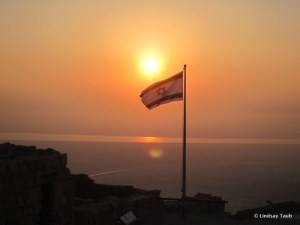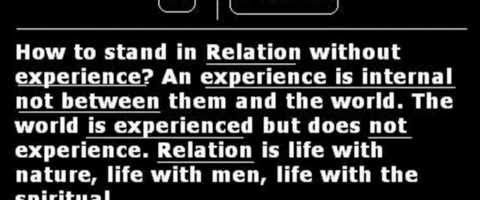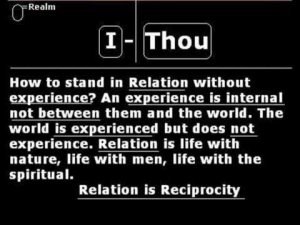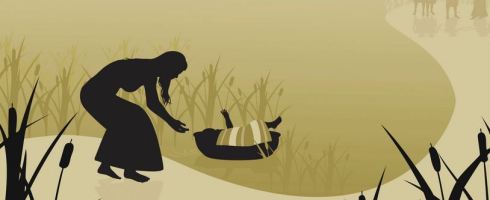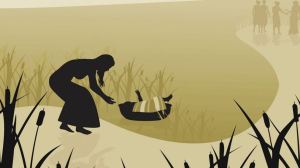Psalm 133 states – Hinei mah tov umah naim shevet achim gam yachad. Behold, how good it is for brothers and sisters to dwell together.
How great it is to be here with all of you, the congregation of Antioch Missionary Baptist Church. For more than 20 years we, Temple Beth El and Antioch Missionary Baptist Church, have marched together in the Martin Luther King parade. So many times over the past 17 years, your gifted Pastor Garis has inspired our Temple Beth El community from our pulpit serving as our Martin Luther King Shabbat speaker as he did one week ago. What a powerful preacher he is! Our congregants are still talking about the spectacular sermon he gave.
Your Pastor leads you well not only within these walls, but in the community. For many years we have served together on the CMS Interfaith Advisory Council. His wisdom and partnership make a difference. His courageous voice speaks loudly and guides our community. My colleagues who worked with him at RAIN were deeply appreciative of his inclusive vision.
How great it is for brothers and sisters to dwell together. How great it is for brothers and sisters to sing together. How great it is for Regina, Pastor’s wife, to be here. How great it is for my deeply supportive husband, Chip, to be here.
Your Missionary Antioch Baptist Church choir is awesome. You lift our prayers heavenward on the wings of song. A Jewish mystical text called the Zohar teaches that “There are halls in the heavens above that open only to the sound of song.” Your choir has opened those heavenly gates.
We thank you for welcoming some of the members of our Temple Beth El choir. I need them here this morning for I do not sing well. God did not bless me with the gift of singing in key. You can ask my husband, Chip. I do no sing and he would add that I should not sing – except when I am alone at home, in the shower, or in the car with no one else is around. I certainly should not sing on the pulpit when a microphone is near.
There is a Chasidic teaching from 18th century Eastern Europe: “When a man is singing and cannot lift his voice, and another comes and sings with him — another who can lift his voice — the first will be able to lift his voice, too. That is the secret of the bond between spirits.”
I cannot sing but being here with all of you enables my voice to be lifted by yours.
As Jews we spend the entire year reading through the Torah, the five book of Moses, word by word, line by line, chapter by chapter, and book by book. This week the entire Jewish world reads the text that was just sung by our choir of crossing through the sea. After centuries of slavery, we passed through the sea of reeds to freedom, witnessed Pharaoh’s army drowning in the sea, and sang that song of celebration. This song is so important that as Jews, we sing it two times a day in our liturgy. This song is so important, we are meant to stand when we hear it chanted from our Torah and imagine ourselves experiencing the ecstasy of liberation. Only two portion of Torah require our standing while they are said – keriat yam suf, the parting of the sea of reeds, and aseret hadibrot, the Ten Commandments. Why is this song so much more important than any other song we know? Because it is the first song we sang when we become a people. You see, when we left Egypt, we were not just Israelites. We were an erev rav – a mixed multitude – but we became one as we stood together in freedom at the other side of the sea. We became one as we made the journey.
This song is so important because it is our first song. Just like wedding couples have their first song and first dance (Chip and my song 16 ½ years ago was “I’ll be There” by the Jackson Five), we have our first song as a people, called the Mi Chamocha in Hebrew, ‘Who is like You?” This song is meant to bring us back in time to our first moment of truly meeting God as Israelites and truly meeting one another as a free nation. And this song we have been singing for 3300 hundred years.
There are three lessons about this song I want to share.
Lesson #1 – Crossing the sea was not easy. There is a Midrash, a legend, that teaches that some of the Israelites completely missed the miracle of the parting of the sea. They were too focused on the mud beneath their feet. “What is this mud?” they complained. “It is ruining my shoes! What kind of leadership is this?” They grumbled missing the miracle around them, never looking up to see the parting of the sea. Some people are so angry about where they are that they have a hard time looking upward and outward and seeing those who are marching not against them but with them. They fail to see their partners or have faith in their leaders. They fail to see the miracles and the good. And we are no different today. Even amidst the strife, we should take time to look up and out and celebrate the successes and miracles around us. My friend Rabbi Angela Buchdahl, who was born in Seoul, South Korea, lit the menorah at the White House during Chanukah last month. She asked the President if he believed that America’s founding fathers could possibly have pictured that a female Asian-American rabbi would one day be at the White House leading Jewish prayers in front of the African-American president. Today we celebrate our religious freedom. Today we celebrate the barriers broken both by Jews, who have endured centuries of isolation and ghettoization, and by African Americans, who have endured centuries of slavery then segregation. Even as we rejoice in our collective song today, we cannot help but look down at the mud — the violence, the fear, the discrimination. And there is so much. We mourn the racial violence and injustice in Fergusen, Missouri, in Staten Island, New York, in Cleveland, Ohio. We mourn the anti-Semitic violence around the world. In Paris two weeks ago, four people were held hostage and then killed in a Kosher supermarket by jihadists. In Jerusalem in November, four Jews were killed and eight were wounded while praying in their synagogue by two assailants wielding butcher knives and guns. In Toulouse, France, in 2012, a gunman walked into a school and shot three children and a teacher. Rarely a week goes by when a Jewish synagogue, shop, or cemetery is not desecrated with swastikas and other hateful graffiti. Rarely a day goes by where a Jewish soul is not threatened and filled with fear, simply because of his or her faith.
Ferguson, Paris, Staten Island, Jerusalem, Cleveland, Toulouse. It seems like we never leave Egypt. The nightmares of oppression keep filling our days.
My father was born in Munich, Germany. I was named Judy for my great aunt Judy who was gassed in Auschwitz. The Holocaust in not some foreign history, it is my story. My grandfather, Eliezer Schindler, was a Yiddish poet and activist who was forced to flee Munich in 1933, narrowly escaping arrest. My dad was just eight years old when his father fled. As the only Jewish child to remain enrolled in his school in Munich, my father was an outsider with not one friend. When the class said their pledge of allegiance, they would complete it by saying “in the name of Jesus, whom the Jews killed,” and stare contemptuously at my father. Anti-Semitism was woven into the curriculum. “If you have tens Jews and kill three, how many are left?” my father’s elementary school teacher would ask. So many branches on my personal family tree were cut off by Hitler: six great aunts and uncles and my great grandfather were murdered. Multiply my story six million times. 1.5 million children were murdered because of the faith into which they were born.
Racism, segregation, police profiling, police violence, anti-Semitism, white Supremacy — they belong not to the past. They exist today.
We want to sing but we can’t. Tears and pain keep silencing us throwing us into mourning. Acquittal after acquittal after acquittal move us to a place of despair. My grandfather, my father, my family tree, me, your grandfathers, your fathers, your sons and you, your mothers, our mothers, your daughters and ours — if they or we happen to be in the wrong place at the wrong time we could be victims simply because the color of our skin or the people to which we belong.
Lesson #2 from the song at the sea is that we did not cross the sea alone. In the prayer book out of which we pray at Temple Beth El, there are powerful words adapted from a piece written by Michael Walzer:
“Standing on the parted shores of history, we still believe what we were taught before ever we stood at Sinai’s foot; that wherever we go, it is eternally Egypt, that there is a better place, a promised land; that the winding way to that promise passes through the wilderness. That there is no way to get from here to there except by joining hands, marching together.”
How did we get across the sea in the book of Exodus? By holding hands and crossing together.
How can we get across the sea of discrimination and hatred today? By joining hands and marching together.
We need each other to fight for education, to fight for equity, to speak up when anti-Semitism and racism rear their ugly heads in conversations, in headlines, in our schools, and on the streets.
In a book called Small Miracles a blind woman by the name of Charlotte Wechsler recalls the story of a walk she once took in New York City. “Living alone and legally blind,” she wrote, “I remained indoors most of the winter. One day with spring beginning to fill the air, I took my long white cane, and stepped outside for a stroll. Reaching the corner, I waited, as I often did, for someone to come along and help me across the street when the light turned green. It took somewhat longer than usual and as I stood there, I began to hum a tune. Suddenly, a strong, well-modulated masculine voice spoke up. “You sound like a very cheerful human being,” it said. “May I have the pleasure of your company across the street.”
Flattered by such chivalry, I nodded my head and said, “Yes.”
Gently he tucked his hand around my upper arm and together we stepped off the curb. As we slowly made our way across, we talked about the weather and how good it was to be alive on such a day. As we kept in step together: it was difficult to determine who was the guide and who was the one being led. We had barely reached the other side of the crossing, when horns impatiently began blasting at what was assuredly a change in the light. We walked a few more paces to reach the curb. I then turned to him to thank him for his assistance and company. Yet before a single word had left my lips, he said, “I don’t know if you realize how gratifying it is to find someone as cheerful as you to accompany a blind person like me across the street.”
You see, these were two blind people who had helped each other — each thinking the other had vision. The reality is, none of us have perfect vision. We can only see the world from where we stand. But if we guide one another, sometimes leading and sometimes being led, we can reach our destination.
Lesson #3 – The song at the sea in Hebrew is known by the very first words, “Az yashir Moshe… And Moses will sing [this song].” Even as we crossed the sea and Moses sang, he knew that a better song would be sung in the future. Our redemption was not yet complete.
Exodus 15:1 in English reads: “Then Moses and the children of Israel sang this song unto God, ‘I will sing unto God for God is highly exalted, the horse and rider has he thrown into the sea.'”
Exodus 15:1 in Hebrew begins – “Az yashir Moshe u’vnei Yisrael et hashirah ha-zot…” using the imperfect form. “Moses and the children of Israel will sing this song.”
They will sing this song celebrating freedom. What is out of the ordinary is that the words with which the song starts: Az yashir… and Moses will sing are in the future tense. This leads the Rabbis of the Talmud (Tractate Sanhedrin) to say that this phrase is an allusion to messianic times. Even in crossing the sea, there was a realization that the song was incomplete. Our freedom was temporary. In the centuries to come we would again experience persecution and pain.
Our poem was incomplete. Our song of freedom was incomplete. Our world was incomplete.
We know about incomplete songs, incomplete freedom, and an incomplete world.
I can’t sing. The headlines silence my song.
“I can’t breathe,” Eric Garner, the 43 year old father of six who was asthmatic said as the police had him in a choke hold causing his death.
So many times this year we all could not sing. So many times this year we all could not breathe. So many times this year we all could not sleep. The racism and anti-Semitism suffocate us. Black lives matter. Jewish lives matter. All lives matter.
We are all familiar with the Black Lives Matter movement. I don’t know if you heard but on Tuesday I made public my decision to step down from my role as Senior Rabbi of Temple Beth El in July of 2016. One of my goals is do more social justice work in the community. I hope that as I commit to being part of the Black Lives Matter movement that you will commit to being part of the Jewish lives matter movement (which is not really a movement at all – just a sentiment that I hope you will embrace). I hope you will be our brothers and sisters in speaking out when you encounter anti-Semitism, as we commit to fighting for racial justice.
Michael Brown matters. Eric Garner matters. Tamir Rice matters. Akai Gurley matters. Trayvon Martin matters. The Jews who were murdered in the Holocaust and the Jews who are dying today at the hands of Jihadists matter. The New York policemen who were shot execution style right before Christmas as they sat in their marked squad car in Brooklyn keeping the peace matter.
Policies of racial profiling are what we aim to end. Demonization of all police, ostracizing even African American police, and hating because of skin color or faith or profession is wrong and continues a vicious cycle violence. The threats of violence that face both our communities will lose their power when the issue moves from being a Black problem or a Jewish problem to an American problem.
On this Sabbath of our MLK sermon exchange may we follow Dr. Martin Luther King’s model for peaceful resistance to create change. Dr. King taught that “The moral arc of the universe is long but it bends toward justice.”
The sea may be wide. The ground beneath us might be muddy and unsteady. The adversaries might seem so close to that we fear they will overcome us. Yet together and with God the waters of hatred will indeed part.
How will we cross the sea? By holding hands and by holding each other up when we are confronted with tragedy that knocks us down.
How will we cross the sea? By hearing each other’s voices and by listening to each other’s concerns.
How will we cross the sea? By cherishing the Divine spark within each other and supporting each other on the journey.
How will we cross the sea? By becoming allies — people who of faith who help one another; by becoming partners — people who share risks and successes; by becoming friends; by not only protesting side by side but by socializing and building strong connections; by acknowledging that we are indeed part of the same family. Black lives matter. Jewish lives matter. All lives matter. Blacks and Jews – We share so much.
We share a common history of slavery. Blacks and Jews – We share so much. We marched together in Selma. A great Rabbi Abraham Joshua Heschel wrote about that moment: “For many of us the march from Selma to Montgomery was about protest and prayer. Legs are not lips and walking is not kneeling. And yet our legs uttered songs. Even without words, our march was worship. I felt my legs were praying.”
Blacks and Jews – We died together in Mississippi. Civil rights leaders James Cheney, Andrew Goodman, and Michael “Mickey” Schwerner worked together in Mississippi on a “Freedom Summer” Campaign to register voters in 1964. On Memorial Day that year, Schwerner and Chaney spoke to the congregation at Mount Zion Methodist Church in Longdale, Mississippi; their speech was about setting up a Freedom School. Schwerner implored them to register to vote, saying, “You have been slaves too long, we can help you help yourselves” A month later, all three were murdered – Goodman and Shwerner who were Jewish were shot, James Cheney who was black was chain whipped and brutally beaten before being shot.
Blacks and Jews. We have traveled together to Raleigh and stood on the Moral Monday stage calling for change. I have full confidence that we will continue to stand together. For you see our Jewish family is small, and we can use more brothers and sisters to support us along our way. As I am sure you, too, the African American community could use additional siblings, allies and friends.
Blacks and Jews. The truth is that Blacks and Jews are not separate and apart. At Temple Beth El we have many African Americans who are married to Jews. We have African Americans who have converted to Judaism. We have African American who are born as Jews – they are no longer “other,” they are fully us.
Blacks and Jews – May we live together today. May we march together. And most of all may we sing together the song of freedom, the song of a life free of fear, the songs of proudly living our culture and our faith.
If we hold hands, we will strengthen each other. If we march together, we will march so much farther. If we sing together, our prayers will rise up on the wings song reaching not only God above but our song will reach the spark of the Divine that dwells in every human soul.
We did sing at the shores of the sea in the book of Exodus. We are singing as part of this MLK Exchange today. If we walk hand in hand, as allies, friends and family, we will sing a future song of redemption.
Y’hiyu l’ratzon imrey fi v’hegyon libi l’fanecha Adonai tzuri v’goali. May the words of our lips and the meditations of our souls be acceptable to you, O God, our rock and our redeemer. Amen.
